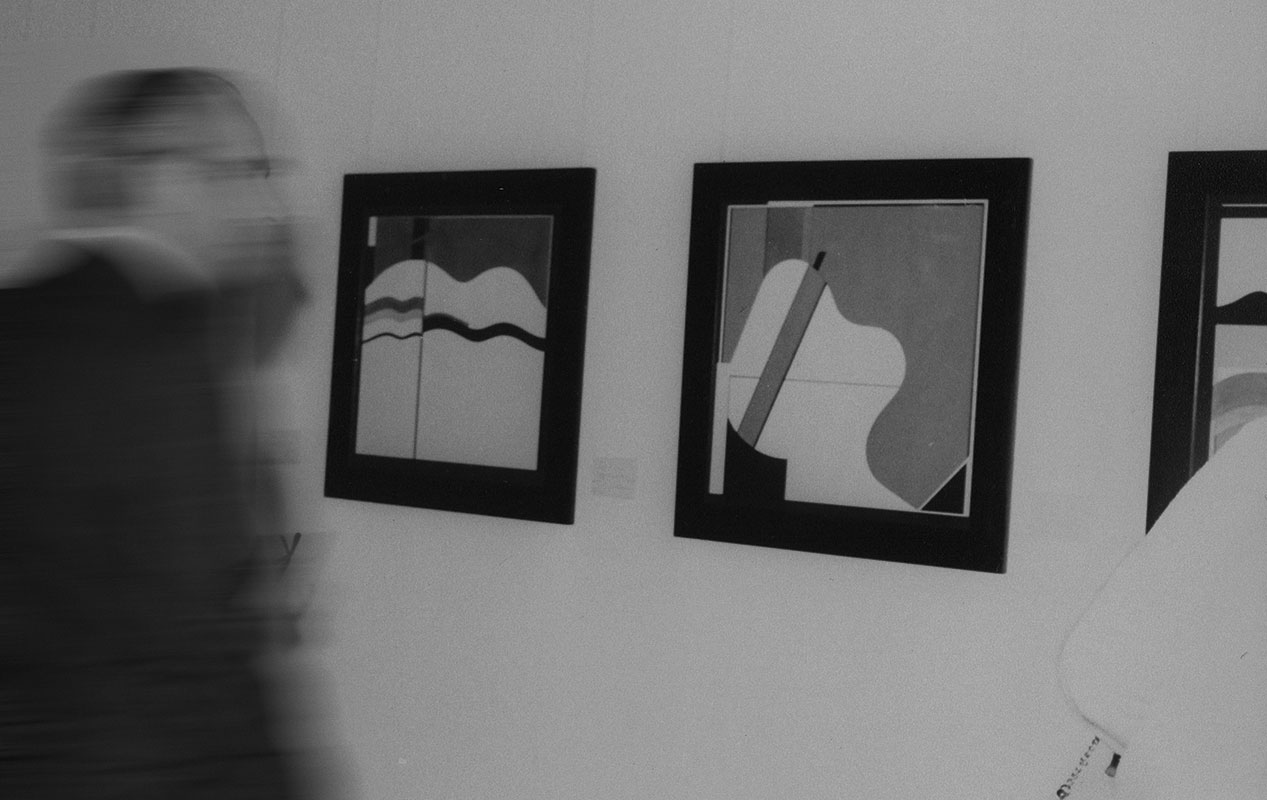Tuneu
São Paulo, 1948
Pintor e desenhista, Tuneu [Antonio Carlos Rodrigues] estudou com Tarsila do Amaral entre 1960 e 1966 e recebeu influência de Wesley Duke Lee. Foi assistente de Willys de Castro e Hércules Barsotti durante vários anos. Em 1966 realizou sua primeira mostra individual no João Sebastião Bar, em São Paulo.
Entre as exposições de que participou, destacam-se:
Salão de Arte Contemporânea de Campinas (várias edições entre 1966 e 1974, Prêmio Viagem à Europa, 1970, e Prêmio Aquisição, 1974); 16º e 17º Salão Paulista de Arte Moderna (São Paulo, 1967 e 1968); Bienal Internacional de São Paulo (várias edições entre 1967 e 1975, Prêmio Aquisição Itamaraty, 1971 e 1975); Panorama da Arte Atual Brasileira, no Museu de Arte Moderna de São Paulo (várias edições entre 1971 e 1989); 3º e 6º Salão Paulista de Arte Contemporânea, no Museu de Arte de São Paulo (1971 e 1975); Arte na Rua 2 (São Paulo, 1984); Off Bienal, no Museu Brasileiro de Escultura (São Paulo, 1996). Em 2010, a Casa de Cultura de Paraty (Rio de Janeiro) apresentou uma exposição individual do artista. A Galeria Raquel Arnaud, que representa Tuneu desde 2008, realizou individuais do artista em 2008, 2013, 2017 e 2019.
Em 2021 foi publicado o livro TUNEU - TRAJECTORY, organizado pela Galeria Raquel Arnaud e editado por Caroline de Menezes, sobre sua trajetória e obra.
"São sombras, quebras, cortes nos planos, uma busca, uma saída de luz, um espaço que escapa. Há sempre um ponto de conflito despontando na tela que logo se funde ao equilíbrio total da imagem. Não há necessidade de traduzir com palavras o que o artista, tão particularmente, faz por meio da arte. Basta estar diante de sua obra para constatar que seu espaço pictórico, considerado “cerebral” por alguns, possui uma inegável profusão de sentimentos narrados e transmitidos por meio da organização e da apresentação das formas abstratas."
Trecho do texto "Geometria da Emoção"
de Caroline Menezes.
retirado do livro TUNEU, 2021.
Painter and designer, Tuneu [Antonio Carlos Rodrigues] studied with Tarsila do Amaral between 1960 and 1966 and was influenced by Wesley Duke Lee. He was assistant to Willys de Castro and Hércules Barsotti for several years. In 1966, he held his first solo show at Bar João Sebastião, in São Paulo.
Among the exhibitions in which they participate, the following stand out:
Campinas Contemporary Art Salon (several editions between 1966 and 1974, Voyage to Europe Award, 1970, and Acquisition Award, 1974); 16th and 17th São Paulo Modern Art Salon (São Paulo, 1967 and 1968); São Paulo International Biennial (several editions between 1967 and 1975, Itamaraty Acquisition Award, 1971 and 1975); Panorama of Current Brazilian Art, at the São Paulo Museum of Modern Art (several editions between 1971 and 1989); 3rd and 6th São Paulo Contemporary Art Salon, at the São Paulo Museum of Art (1971 and 1975); Art on Streets 2 (São Paulo, 1984); Off Bienal, at the Brazilian Sculpture Museum (São Paulo, 1996). In 2010, the Casa de Cultura of Paraty (Rio de Janeiro) presented a solo exhibition by the artist. Galeria Raquel Arnaud, which has represented Tuneu since 2008, held a solo show by the artist in 2008, 2013, 2017 and 2019.
In 2021, the book TUNEU-TRAJECTORY was published, organized by Galeria Raquel Arnaud and edited by Caroline de Menezes, about his career and work.
"There are shadows, breaks and cuts on the plane, a searching and departing light, a space that escapes. There is always a point of conflict that appears on the canvas that soon blends in with the entire balance of the image. There is no need to translate into words what the artist, so particularly, does through art. One has only to see his work to realize that his pictorial space considered “intelectual” by some possesses an undeniable profusion of sentiment narrated and transmitted through the organization and presentation of the abstract forms."
Part of the text "Geometry of Emotion"
by Caroline Menezes.
from the book TUNEU, 2021.
© copyright TUNEU 2021
All rights reserved. Any work presented on this website or any portion thereof may not be reproduced or used in any manner whatsoever without the express written permission of the artist.


![Artistas na mostra [artists at the exhibition] “Paulistas em Brasília”, 1987](http://tuneu.com.br/wp-content/uploads/2021/06/IMG_1673-ret.jpg)
![No atelier em [<em>at studio in</em>] Pariquera-Açu](http://tuneu.com.br/wp-content/uploads/2021/07/TU_PROCESSO-5.jpg)